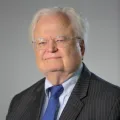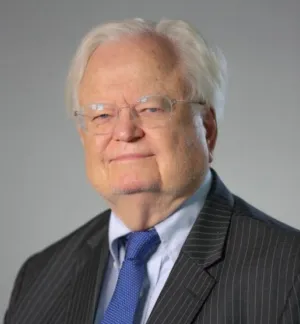In the aftermath of the failed Soviet coup, the United States should urgently take the lead in implementing a robust strategy to confront perhaps the most daunting geopolitical challenge yet for the Bush administration: the long-term Soviet transformation and that of the republics (or independent nations) to democracy and a market economy.
We originally called this strategy the Grand Bargain. It begins with explicit recognition of preeminent Western stakes in the success of Soviet reform. In this internal struggle, the courage, determination and resources of the Soviet center and the republics will be the most important factors. But the speed of the journey, the pain involved, the odds of success and the risks -- including those of cataclysmic failure -- depend critically on the extent of Western engagement and support.
The terms of the Grand Bargain remain unchanged: substantial Western support and financial assistance to motivate and facilitate Soviet reforms strictly conditioned upon the political and economic transformation of that vast conglomerate. Real Western resources committed not for Soviet promises, vague plans or repeated proclamations of the kind that Mr. Gorbachev took to the London Economic Summit. Real Western resources committed only after real Soviet economic reform, which, despite the momentous and thrilling events in Moscow, has not yet occurred.
It should be clear what the Grand Bargain is not. It is not Western billions up front to the Soviet Union on the basis of hope or even Mr. Yeltsin's courageous speech from the top of a tank. If the West today were to put a bag of billions on the table in advance of fundamental economic reform, the money would be wasted.
It is not a plan to rescue Mr. Gorbachev and the center at the expense of Mr. Yeltsin and the republics. The peaceful transformation of the Soviet Union to democracy and the market cannot occur without close and enduring cooperation between a weakened central government, whoever its leader, and the republics.
It is not a Western effort to bail out, bribe or blackmail the Soviet government and the republics. Soviets (and Russians, Ukrainians etc.) have to want to transform their political and economic systems for their own reasons and not because the West believes it is good for them. They must make it happen, as they did last week in the streets of Moscow. We can and should provide whatever assistance we can to give them the best prospects of success.
So what should the United States and its Western partners do immediately?
1) The scheduled G-7 meeting late this week in London is a good start. After that, Prime Minister Major, as current chairman of the G-7, should visit Moscow, taking with him the heads of the International Monetary Fund, World Bank, European Bank and the Organization for Economic Cooperation and Development to demonstrate dramatically a Western commitment to vigorously help the reform cause.
2) Immediately thereafter, a large technical team from these international lending institutions should set up shop in Moscow and republics to assist in the preparation of concrete, detailed economic reform plans.
3) The West should now explicitly state its willingness, after reforms are underway, to provide substantial funds in tandem with the international lending institutions for balance of payments support; infrastructure support for transportation, communication, energy and defense conversion; assistance for an adequate safety net; and eventually a currency stabilization fund. Millions of individual Soviet citizens desperately need a brighter Western beacon to bolster their willingness to move ahead.
4) The West should immediately announce it will do whatever is necessary with emergency food and medical aid to try to ensure that the first winter of a non-Communist Soviet Union is not intolerable.
5) The Bush administration should appoint a significant public figure to head a new and major unit in the State Department to coordinate assistance to the Soviet reform effort. Kenneth Dam, John Whitehead or Frank Carlucci come to mind to work with the president, secretaries Baker and Brady and Ambassador Strauss and to coordinate U.S. efforts with those of our G-7 allies.
Forty years ago, George C. Marshall said to the failing nations of Western Europe: If you can work together to develop a coherent program, we will provide support and finance "so far as it may be practical to do so." Although the Soviet Union is quite different from postwar Western Europe, the relevant features of this analogy are the geopolitical transcendence of the situation, the necessity for American leadership, the strength and stamina of the required U.S. commitment, the needed inventiveness of design and exacting skill of implementation and the confidence that such a commitment inspired in discouraged people rising from a catastrophe.
As a result of Truman and Marshall's American leadership and vision, we now have a Europe close to whole and free. A U.S.-led Western effort to help transform the Soviet Union would certainly be more difficult than the challenge undertaken by the United States through the Marshall Plan. It would at best take many years to accomplish. It could not be done on the cheap. Nevertheless, there are more than enough reasons of self-interest and values to try. Given the frantic pace of events and imminent dangers in the Soviet Union, there is not a moment to lose.
The writers are members of the faculty at Harvard University's John F. Kennedy School of Government.
Allison, Graham and Robert D. Blackwill. “On With the Grand Bargain.” The Washington Post, August 27, 1991





